...an image using an Ha filter.
due to the abundance of hydrogen, you'll get some signal all the way from the highest energy to the lowest energy regions in a nebula right up to the ionization front, with rare exceptions. thus hubble pallet images using SII, Ha, and OIII are typically teal and gold rather than red green and blue.
I chose a M76, a relatively bright planetary nebula with some detail, for the first image with my new narrower Helium II filter (4nm from chroma).
a quick blink of the mono channels for this one showed me that the brightest signal areas were not quite completely separated
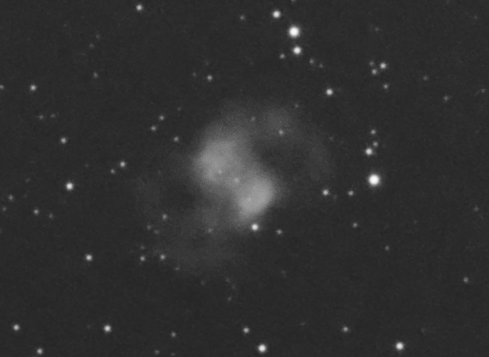
which means a scientifically assigned color pallet will give the full spectrum...
a rainbow in space:
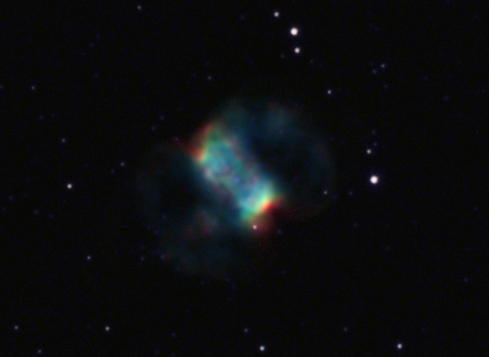
Helium II blue, (so faint it's stretched), Oxygen III linear green, Nitrogen II linear red
here's the color image with a log stretch which works quite well for bright planetaries with faint shells:
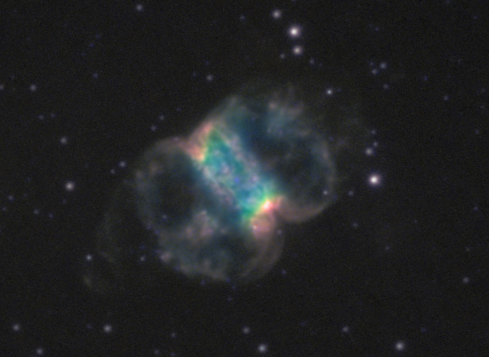
a healthy does of NII was applied as luminance
here's another variant with OIII assigned to teal rather than green:
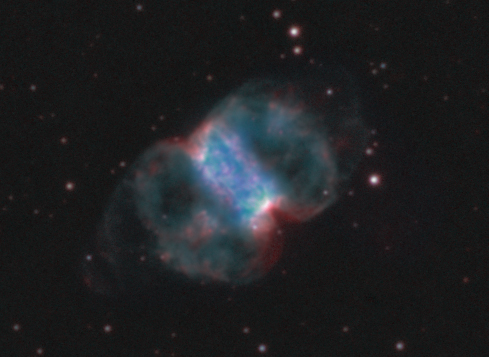
mono NII
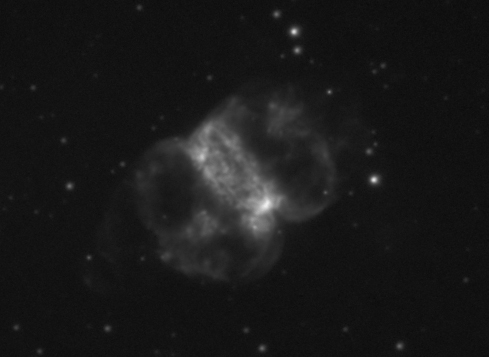
mono OIII
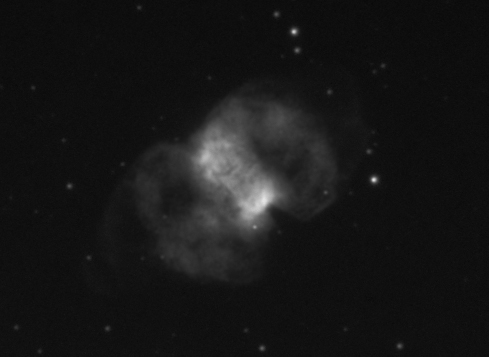
Helium II as blue with a green continuum filter as red and green (both new filters):
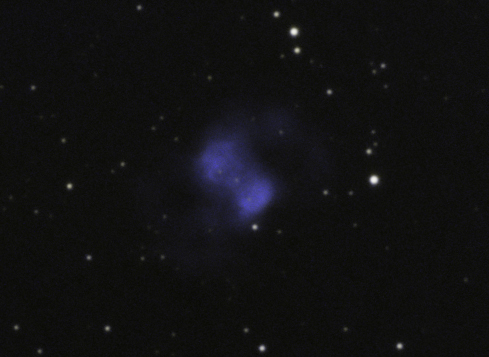
stretched blink
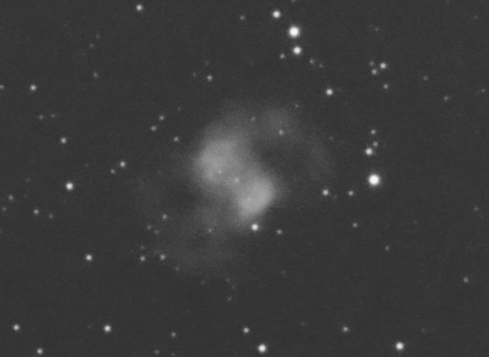
still looking for the pot of gold
8" LX200R, SX Trius 694 and QSI 660 binnedx2 to 0.8"/px
astrodon 3nm NII, 3nm OIII, chroma 4nm Helium II filters
ASA DDM60
NII 35x20min OIII 17x20min HeII 27x20 min
11/2014-2/2015
never enough exposure time...